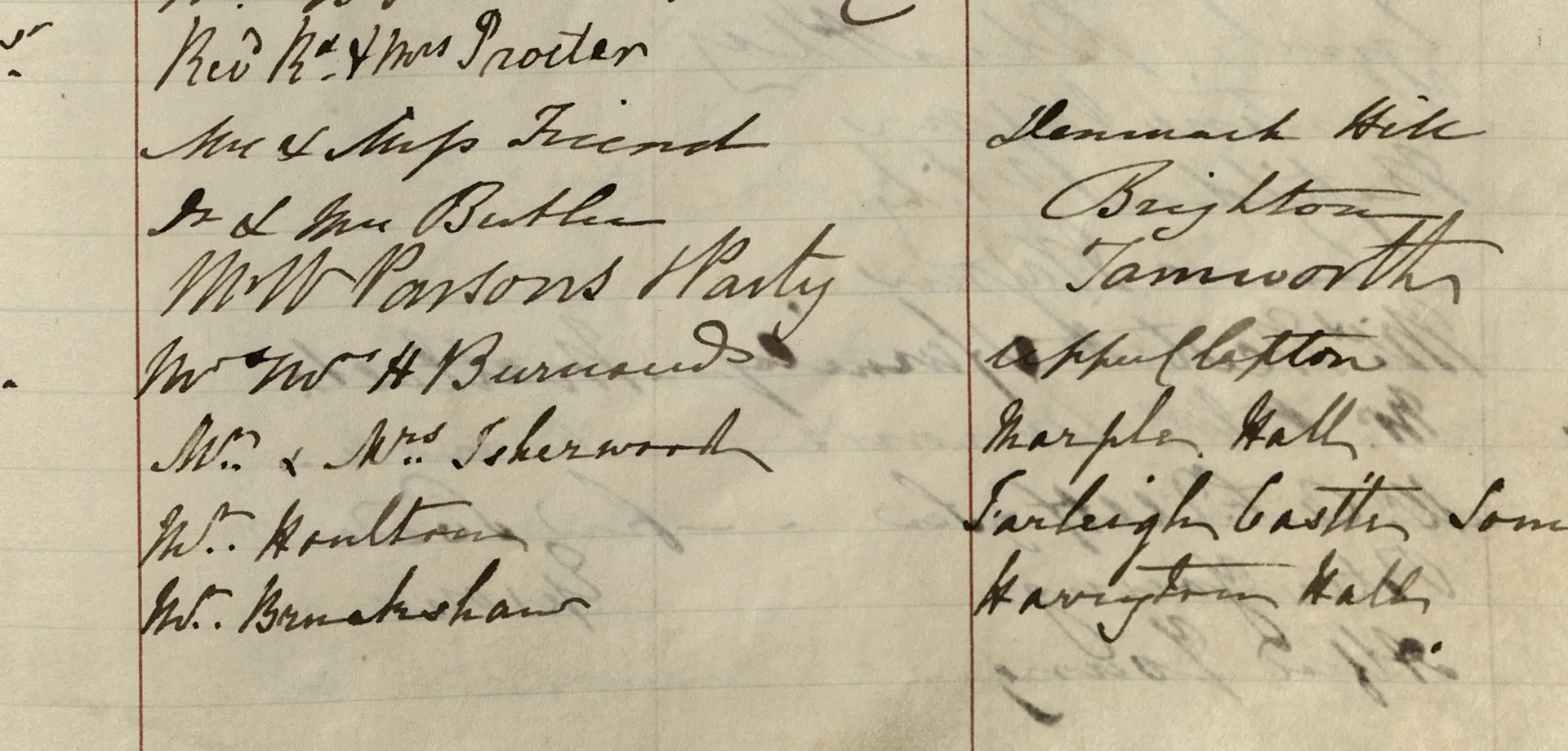On 1 July 1842, a Mr and Mrs Isherwood of Marple Hall signed into the visitors’ book at Chatsworth.
There had been a house on the site of Marple Hall since the reign of Henry VII, but the building our visitors knew dated from 1658. It was built by Henry Bradshaw III. During the 18th century the male Bradshaw line died out and the house passed to Nathaniel Isherwood, whose wife Mary was born Bradshaw.
The couple who called at Chatsworth must have been Thomas Bradshaw-Isherwood IV, who inherited the hall in 1839, and his wife Mary Ellen. Thomas suffered from ill health from an early age. At the age of 27, he suffered a breakdown, and consequently in 1847, Mary Ellen took over the running of their estates. At that time, they had been married for six years and had two young children.
The year 1842 saw Chartist riots in some parts of Britain. They were triggered by fears that wages for mill workers were to be cut by half. The Chartists were campaigners for political reforms such as extending the franchise. It was said that rioters threatened Marple Hall, but Mary Ellen appeared on a balcony, faced them down and saved the building. She acquired a reputation for being a strong and capable woman. It has been suggested that her encounter with the rioters was used by Disraeli in his novel Sybil. In 1886, Mary Ellen and Thomas moved to Grantham in Lincolnshire and their son John Henry moved into Marple Hall.
During the 20th century, one of the Isherwoods, Christopher (1904-1986) became an acclaimed novelist. His novel Goodbye to Berlin inspired the musical Cabaret.
Marple Hall didn’t fare so well. Christopher inherited it in 1940 but he was living in California and had little interest in it. He relinquished his stake in it in 1941.
Marple Hall was looked after by caretakers until they retired in 1953. After that it stood empty and was targeted by thieves and vandals. It was stripped, looted and fell into ruin. In the late 1950s it was demolished by Marple Council.
When visiting a large country house it is easy to think that it is indestructible, that its family are immovable. This is not necessarily so, and the fate of Marple Hall is a sobering reminder of how fragile they can be.






